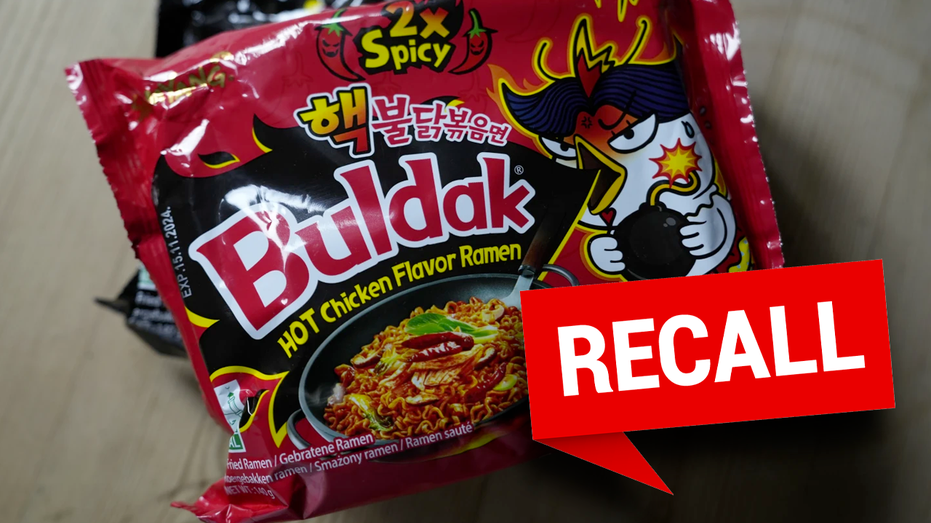The Danish Veterinary and Food Administration announced the recall of three types of South Korean spicy instant noodle products because the capsaicin, or chili pepper extract level is so high it could pose a health hazard.
Seoul-based Samyang Foods — considered one of the South Korea’s largest companies — makes the noodles which are sold around the world.
The Danish authorities have recalled Buldak Samyang 3 X Spicy & Hot Chicken noodles, Buldak Samyang 2 x Spicy & Hot Chicken, and Buldak Samyang Hot Chicken Stew.
The Associated Press reported that the authorities say the products contain an overly high dose of capsaicin, which is an active ingredient in chili peppers. But capsaicin is also a chemical that can be considered a neurotoxin and poses a risk of “acute poisoning.”
‘ONE CHIP CHALLENGE’ MAKER REMOVING PRODUCT FROM SHELVES AFTER DEATH OF MASSACHUSETTS TEEN
South Korean products have gained popularity on social media as children and teenagers in Denmark have been daring each other to eat “a strong bowl of noodle soup,” the Danish administration said.
“The noodle dishes marketed as extremely strong must no longer be sold because consumers and especially children risk acute poisoning,” the Danish Veterinary and Food Administration said. “The capsaicin content is so high that it can pose a health hazard.”
Henrik Dammand Nielsen of the agency said those at risk include children, frail adults and elderly individuals, who could all experience burning and discomfort, nausea, vomiting and high blood pressure.
WHAT IS THE ‘ONE CHIP CHALLENGE’ AND WHAT PEPPERS ARE IN IT? EXPERTS SPEAK OUT AFTER TEEN’S DEATH
“That is why we are now demanding shops remove the products from their shelves,” the agency said.
In a statement provided to the media in South Korea, Samyang Foods said they understood the recall came because of the spiciness of the product, not because of the quality.
KENTUCKY 8-YEAR-OLD DIES AFTER EATING STRAWBERRIES FROM SCHOOL FUNDRAISER
Fox News Digital has reached out to Samyang Foods for comment.
Spicy food challenges are nothing new and have been around for years. Sometimes the challenges include local chili pepper eating contests, while other times the challenge may be to make it onto a restaurant wall of fame by completely consuming extra spicy dishes.
A Massachusetts teen with a congenital heart defect participated in a spicy tortilla chip challenge on social media back in September, but ultimately died from eating a large quantity of chili pepper extract.
The Associated Press obtained the autopsy report, which showed the 10th grader died after eating the Paqui chip as part of the manufacturer’s “One Chip Challenge.”
The Associated Press contributed to this report.




